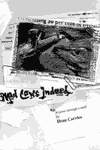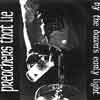Peter Phillips (editor), �Project Censored: 2003�
Hmm. Seems my short story on Mia Zapata was too long for anybody to finish, or if they did, they didn�t feel like commenting. That�s a shame. I�m a little too close to the subject to know if the story is actually any good.
But let�s stick with the death motif, this being the Christmas season and all. It turns out Gary Webb died this weekend.
Yeah, I know, who the hell is he, right?
Webb was a reporter at the San Jose Mercury News at the time that I was just getting started with journalism classes. His three-part series, entitled �Dark Alliance� dealt with the rise of crack cocaine and one of L.A.�s most powerful dealers.
The dealer in question, �Freeway� Ricky Ross, was getting the majority of his supplies from Nicaraguan Freedom Fighters, also known as the Contras, which in turn helped arm the �Democratic� contra rebels.
Ronald Reagan�s White House goons and the CIA were also funding this insurgency in Latin America. The implications Webb made with his series was that the CIA turned a blind eye to the rise of Ross and his drug trafficking, because one, the crack epidemic was only affecting blacks, and two, the suppliers were in deep with the U.S. government.
People went nuts. �Why the hell is some po-dunk paper in the middle of Silicon Valley,� people wrote and phoned in to the Los Angeles Times, �reporting on things in our backyard?�
I saw Gary Webb speak right about this time. His reportage was getting international coverage, and the Bay Area Society Professional Journalists awarded Webb as Journalist of the Year. He spoke to a JACC meeting in Fresno as the keynote speaker. Journalism students from community colleges up and down the state got to hear him talk about his story.
The three areas that were hit the hardest by the crack epidemic � L.A., New York, and Washington D.C. (all of which consist of some of the highest concentrations of blacks) � all asked that question. And the newspapers for those three areas, The Los Angeles Times, The New York Times, and The Washington post, all decided to look into it.
Not to continue coverage, mind you. No, they went after Webb himself, looking for anything to poke holes into, so as to make his story deemed flawed. They found some, but instead of capitalizing on these holes to continue the investigation, they made Webb look like a conspiracy hack, which he wasn�t. It seems to me that if you found flaws in a story, you would want to fix those flaws. Not these papers, however. They were content to point out flaws, and then accuse the entire story of being wrong. And what did they have to refute Webb's story? Official sources.
�Hey, did you, a member of the CIA, possibly have a hand in illegal activities? No? Well, this Webb guy must be a crackpot!�
The triangulation of fire from the three papers seemed to push the Mercury News against a wall, and they backed off the story. Webb protested, saying he could provide proof against any of the charges made by the major dailies. Instead, the Mercury News pulled him off the story, reassigning him to City Hall in Cupertino, a beat usually reserved for first year reporters. He resigned soon after.
At this time, I got to meet Jerry Ceppos, then editor of the Mercury News at an Associated Press Managing Editors convention. Ceppos, Dark Alliance, and The Mercury News were the running joke of that convention. Ceppos accepted it all with a sheepish grin. I was furious at that. Ceppos should have been fighting these other papers tooth and nail.
But whatever the plans were of these other papers, Webb's story, and by default, Webb himself was discredited.
I�ve often said my long-term journalistic goals are to get a major corporation and/or government in a lot of trouble, and then get killed my same said corporation and/or government. When I first said this, Webb had fulfilled one of these goals.
Make no mistake � Webb made major problems for the government when the story came out. Eight years later, however, the story is nearly erased from memory.
Now Gary Webb is dead, reportedly despondent that he couldn�t land another job at a large daily. The coroner has ruled his death as a suicide, from two shots in the head.
Yes, you read that right. Two shots.
�It's unusual in a suicide case to have two shots,� said Coroner Robert Lyons, �but it has been done in the past, and it is in fact a distinct possibility.�
Oh, well, it's an official source. It must be true.

